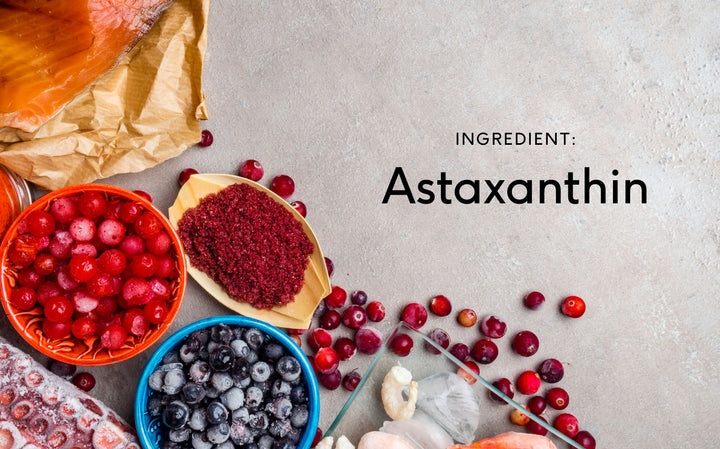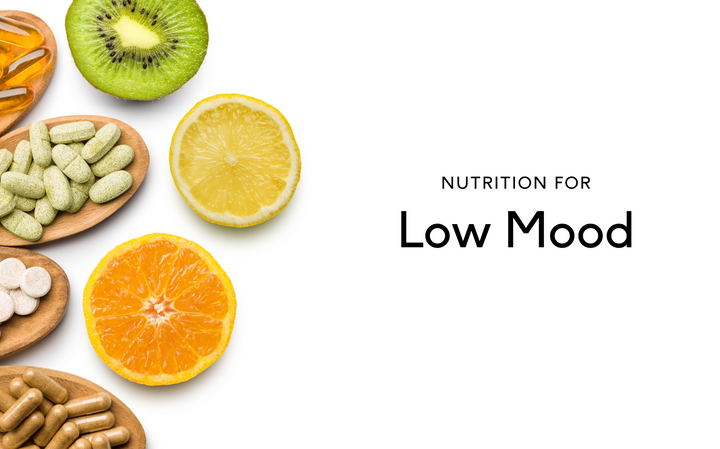Learn About Ginseng in 5 Minutes
Table of contents

What is ginseng?
Ginseng is a root that has been used in Eastern medicine for centuries. The ginseng extract Feel uses is derived from Korean ginseng (Panax ginseng), but various plants in the Panax genus grow roots that contain ginsenosides and gintonin, the two major categories of active components present in ginseng root.
With numerous studies conducted over the last few decades, Western science is beginning to confirm some of the benefits that have made ginseng such an integral aspect of traditional medicine in various East Asian countries. For instance, ginseng may have powerful antioxidant properties, it may have neuroprotective properties, and it could boost the immune system while promoting proper sexual health.
Is Korean ginseng water-soluble or fat-soluble?
Some substances in ginseng root are water-soluble, and others are fat-soluble. The two most important components in this root, gintonin and ginsenosides, are both water-soluble, which means that they absorb into your tissues quickly with high bioavailability.
Where can ginseng be found naturally? Common sources of ginseng:
The only known natural source of the ginsenosides and gintonin present in ginseng is ginseng root.
What is the recommended daily value for ginseng?
Ginseng is not recognised as an essential nutrient, so there is no official nutrient reference value (NRV) for this substance. Most clinical studies conducted into the benefits of ginseng, however, have used 200mg doses.
Can you absorb enough ginseng from food?
Ginseng root is very bitter and unpalatable. While this root can be added to food in small quantities, it is much easier to consume ginseng in supplement form.
Why is Korean ginseng necessary for your body?
Modern research backs up the perspective found within the anecdotal testimony of traditional medicine patients and practitioners that ginseng may have potent antioxidant properties. Each antioxidant compound found in nature is unique, however, and ginseng appears to have specific benefits beyond its potential ability to reduce inflammation and prevent oxidative stress.
Functions of ginseng
- Potential antioxidant benefits: Multiple lab and clinical studies indicate that ginseng may have potent antioxidant properties. Via these antioxidant properties, ginseng also appears to exert anti-inflammatory effects.
- Potential neuroprotective benefits: Some clinical studies indicate that ginseng may improve cognitive performance. Additionally, clinical studies show that long-term ginseng administration may reduce the symptoms of Alzheimer’s disease and other neurodegenerative disorders.
- Potential immune benefits: Various clinical studies indicate that Korean ginseng could improve immunity. Ginseng may even boost the effects of vaccines.
- Potential sexual benefits: Ginseng has been used as a treatment for erectile dysfunction for centuries. Modern research confirms that Korean ginseng may be useful for this purpose.
- Potential energy benefits: Research indicates that ginseng could reduce fatigue and improve energy levels.
- Potential metabolism benefits: Clinical studies indicate that Korean ginseng may reduce blood sugar levels, increase insulin levels, and increase insulin sensitivity.
When should you take ginseng?
Antioxidants are beneficial regardless of your age or health status, but ginseng treatment may be even more applicable for individuals suffering from low energy, mental fuzziness, or sexual dysfunction. Based on the evidence gathered by both modern science and traditional medicine, ginseng appears to act as a general vitality-booster. This simple herb appears to provide more drive, gusto, and stamina no matter what your current energy levels may be.
Research has shown that Ginseng may have positive benefits for focus, concentration, and learning, which is why we've included 20mg of Panax ginseng extract in Feel Focus.
How long do you need to take ginseng to start experiencing its benefits?
The most important components of ginseng are water-soluble, which means that they should start absorbing into your tissues almost immediately after ingestion. Clinical studies, however, indicate that Korean ginseng has a cumulative effect, so it may take a few days to note the benefits of this root extract.
Consistency is key, and our research recommends taking your Feel supplements for at least 3 months to allow your body to adjust and provide you with the desired benefits.
How long does it take for your body to digest/absorb ginseng?
As a water-soluble substance, it generally only takes your body around 24 hours to fully absorb ginseng that you ingest orally.
How long does ginseng stay in your body after you take it?
Water-soluble substances like the active ingredients in ginseng generally only stay in your body for 2-3 days.
Is ginseng an antioxidant?
Both clinical and lab research indicate that Korean ginseng may have potent antioxidant properties.
Can you overdose on ginseng? What are the effects?
Ginseng has low toxicity, and ginseng overdose is rare. If you take too much of this substance, however, you may experience fidgeting, irritability, muscle tremors, and other symptoms associated with mania.
Does ginseng dissolve, flush out, or build up in the body?
The active components in ginseng generally flush out of your body within 2-3 days. These ginseng components do not appear to accumulate in your liver or other fatty tissues.
Can you take ginseng during a diet?
Ginseng does not increase appetite, and it is both gluten-free and vegan. Instead of conflicting with your diet, ginseng’s potential energy-inducing properties may help you lose weight faster.
Are there synthetic forms of ginseng?
In recent years, multiple research teams have expressed interest in producing synthetic ginsenosides. At present, however, it does not appear that any of these compounds have entered the consumer market.
Absorption rate of synthetic ginseng
No information is available on the potential bioavailability of synthetic ginseng.
Why might natural forms of ginseng be better?
There is no information indicating that synthetic ginseng would be desirable except from an economic perspective.
How to take ginseng
Ginseng can be consumed as an additive to food or as an oral supplement.
Ginseng trends in medicine
In 2020, two studies were published detailing ongoing research into ginseng’s potential cardiovascular benefits. In the first study, ginseng appeared to reduce the symptoms of hypertension in patients with type 2 diabetes, and in the second study, ginseng was investigated as a potential treatment for chronic obstructive pulmonary disease (COPD).
Sources
1. Potentiation of Antioxidative and Anti-Inflammatory Properties of Cultured Wild Ginseng Root Extract Through Probiotic Fermentation
2. Antioxidative Effects of Korean Red Ginseng in Postmenopausal Women: A Double-Blind Randomized Controlled Trial
3. Improvement of Cognitive Deficit in Alzheimer's Disease Patients by Long Term Treatment With Korean Red Ginseng
4. Prospective Study for Korean Red Ginseng Extract as an Immune Modulator Following a Curative Gastric Resection in Patients with Advanced Gastric Cancer
5. Clinical Efficacy of Korean Red Ginseng for Erectile Dysfunction
6. Wisconsin Ginseng (Panax Quinquefolius) to Improve Cancer-Related Fatigue: A Randomized, Double-Blind Trial, N07C2
7. Korean Red Ginseng (Panax Ginseng) Improves Glucose and Insulin Regulation in Well-Controlled, Type 2 Diabetes: Results of a Randomized, Double-Blind, Placebo-Controlled Study of Efficacy and Safety
8. Vascular effects of combined enriched Korean Red ginseng (Panax Ginseng) and American ginseng (Panax Quinquefolius) administration in individuals with hypertension and type 2 diabetes: A randomized controlled trial
9. Effect of Panax Ginseng (G115) Capsules versus Placebo on Acute Exacerbations in Patients with Moderate to Very Severe COPD: A Randomized Controlled Trial













































 Back
Back




